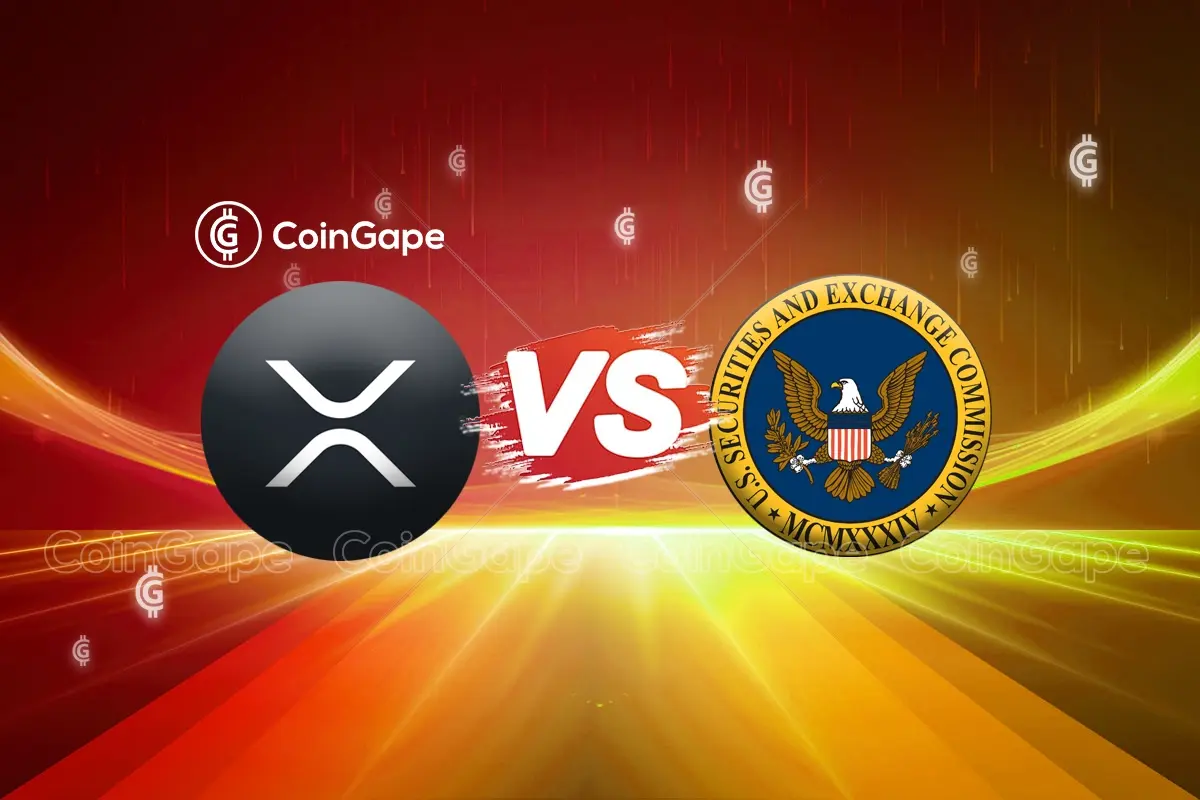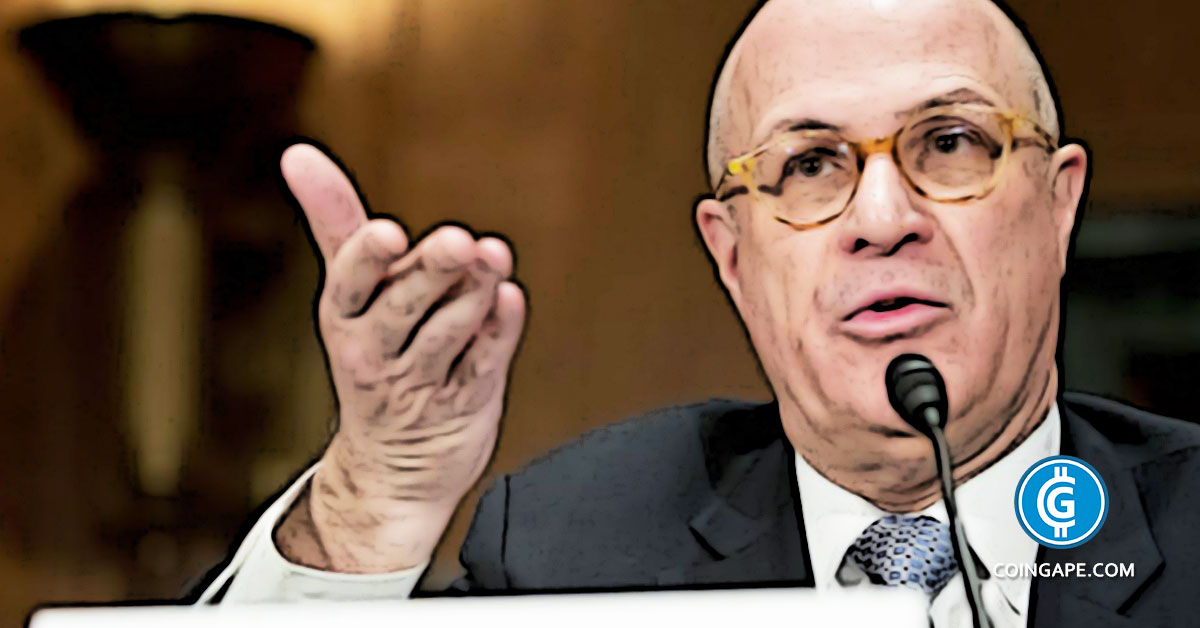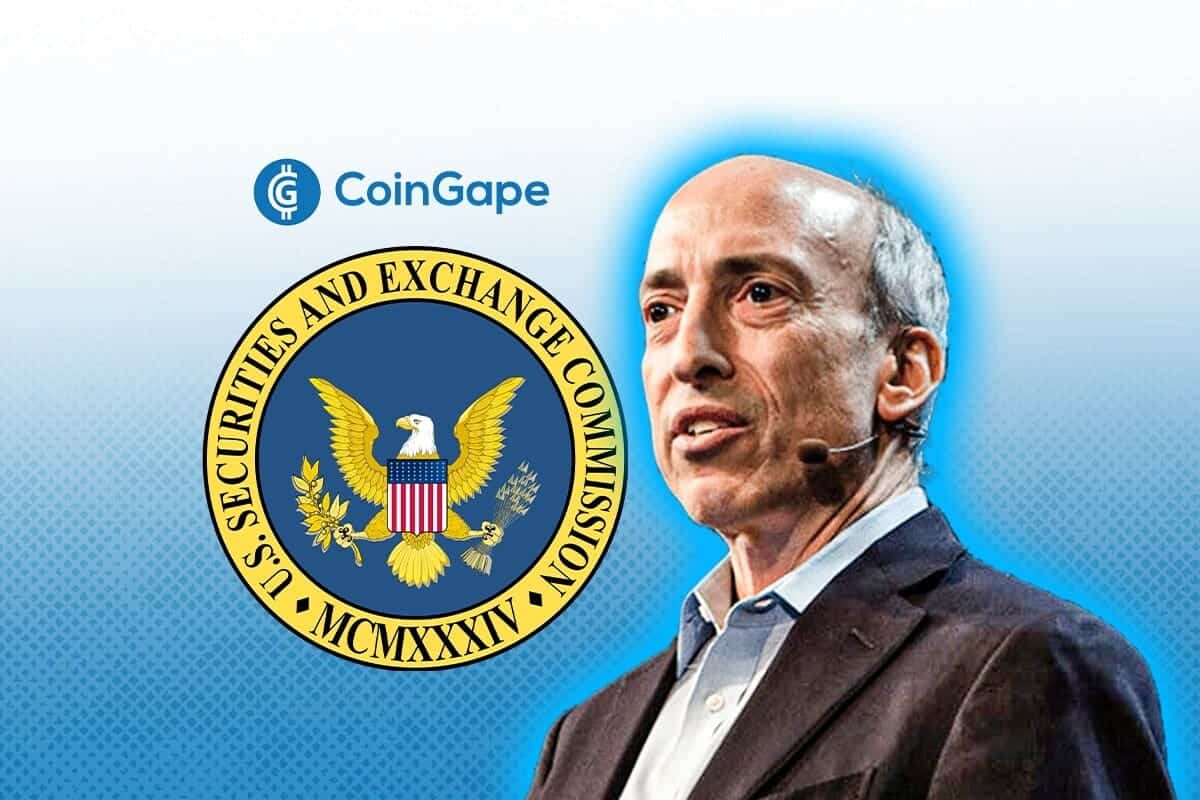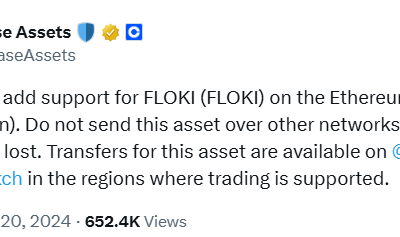Regulation
XRP Lawyer Weaponizes X Community Notes Against SEC Crypto Scam Alert

A recent post by the U.S. Securities and Exchange Commission (SEC) on X (formerly Twitter) has sparked significant backlash from pro-XRP lawyer Fred Rispoli. The SEC reiterated its warning regarding crypto scams. However, Rispoli leveraged X community notes to counter the claim.
XRP Lawyer Thrashes SEC’s Crypto Scam Warning
The SEC warning on X stated, “Scammers often use innovations and emerging technologies like #crypto to perpetrate investment scams,” urging caution among investors. The SEC’s post aligns with a May Investor Alert issued by its Office of Investor Education and Advocacy.
The alert warned of increasing crypto scam cases, where scammers exploit the popularity of digital assets to lure investors. The alert outlined five common tactics used by fraudsters, including establishing trust through social media and directing victims to fake investment platforms.
“Fraudsters Connect With You on Social Media Platforms or Through a Supposedly Accidental Text Message, and Then Gain Your Trust,” the alert stated, emphasizing the dangers of relationship-based scams, often referred to as “pig butchering scams.”
However, Rispoli quickly responded, requesting a review of the SEC’s post via X community notes. He accused the agency of misleading investors. He said, “The OP has scammed hundreds of thousands of investors into purchasing crypto given the agency’s all clear only to be rugged by the agency at a later date.”
This criticism highlights ongoing tensions between the SEC and the crypto industry. For context, the American watchdog allowed Coinbase to go public in 2021 but later crackdown on the exchange for alleged sale of securities.
The XRP lawyer’s response on the crypto scams warning reflects a growing disappointment amid legal actions against major firms such as Binance, Kraken, and Uniswap. These companies have faced scrutiny over alleged violations of securities laws. In these cases, the agency claims that many digital assets and trading platforms qualify as securities and should be regulated as such.
OpenSea Wells Notice
In a recent high-profile case, the SEC issued a Wells Notice to OpenSea, a leading NFT marketplace. The regulatory body threatened to sue the platform for sale of NFTs, which it deems to be securities. This move has drawn parallels to past cases involving other crypto firms.
OpenSea CEO Devin Finzer expressed shock at the SEC’s stance, arguing that the regulator’s actions could stifle innovation in the digital collectibles space. Finzer pointed out that the SEC has now entered the “uncharted territory.” He also suggested that many artists and creators could be negatively impacted by these regulatory measures.
This aligns with Rispoli’s claim of the SEC being behind ‘crypto scams’ that affect investors owing to ambiguous regulation. Adding further complexity to the debate, Ripple CLO Stuart Alderoty referenced a 1976 SEC ruling. At the time, the agency clarified that art galleries promoting and selling artworks for “investment motive” were not required to register with the SEC.
Alderoty argued that this precedent could apply to NFTs, which, like traditional art, are traded as collectibles rather than securities. “Fun fact: In 1976, the SEC ruled that art galleries, even when promoting and selling to buyers that had investment motives, didn’t need to register with the SEC,” he noted.
Disclaimer: The presented content may include the personal opinion of the author and is subject to market condition. Do your market research before investing in cryptocurrencies. The author or the publication does not hold any responsibility for your personal financial loss.
Regulation
“Crypto Dad” Chris Giancarlo Emerges Top For White House Crypto Czar Role

Chris Giancarlo, widely known as “Crypto Dad,” has emerged as the leading candidate for a newly proposed role of crypto czar in the White House under President-elect Donald Trump’s administration. The potential appointment underscores a strategic effort to advance crypto regulations and foster blockchain innovation in the United States.
This proposed position would be the first of its kind in the White House, aiming to bring clarity to the growing $3 trillion digital asset market. Chris Giancarlo, the former Chair of the Commodity Futures Trading Commission (CFTC), is known for his progressive approach to digital currencies and blockchain technologies.
Chris Giancarlo Leads Race for White House Crypto Czar Role Under Donald Trump
According to a Fox Business report, Chris Giancarlo is the top contender for the position of White House crypto czar, a role being considered by the Trump transition team to streamline crypto regulations and foster blockchain development.
As CFTC Chair from 2017 to 2019, Chris Giancarlo oversaw critical advancements in the digital asset space. This includes the launch of the first Bitcoin futures. He later co-founded the Digital Dollar Project, a nonprofit initiative exploring the potential of a U.S. central bank digital currency (CBDC). Giancarlo’s regulatory expertise and understanding of digital innovation position him as a key figure in shaping the future of the crypto sector.
The Trump administration aims to utilize this position to address industry concerns over the Biden administration’s perceived heavy-handed enforcement. The crypto czar would also collaborate with federal agencies to establish a framework for the $180 billion stablecoin market and enhance the overall regulatory landscape for blockchain and digital currencies.
Trump’s Strategic Approach to Digital Asset Policy
President-elect Donald Trump has expressed plans to make the U.S. a global leader in cryptocurrency and blockchain innovation. Part of this strategy includes appointing a crypto czar to advance policies to support the industry’s growth.
Trump has also proposed the establishment of a presidential crypto advisory council to address ongoing regulatory challenges. This initiative aims to align federal policies with industry needs, fostering a competitive environment for blockchain businesses. The council will explore the creation of a Bitcoin reserve as part of the administration’s broader crypto policy agenda.
The transition comes as current SEC Chair Gary Gensler announced his resignation effective January 20, 2025, coinciding with Trump’s inauguration. Gensler faced criticism during his tenure for his enforcement-driven approach to crypto regulations.
Amid speculation, Chris Giancarlo clarified that he is not pursuing the SEC Chair role. Giancarlo said in a recent statement,
“I’ve already cleaned up earlier Gary Gensler mess at the CFTC and don’t want to have to do it again.”
His focus remains on advancing crypto-friendly policies through a potential new role. According to the report, the “Crypto Dad” stated,
“I would be honored to be considered for the role.”
The creation of the crypto czar position could mark a pivotal moment in the evolution of U.S. crypto policy. With Chris Giancarlo leading the race, the industry anticipates advancements in crypto regulations under the new administration.
Disclaimer: The presented content may include the personal opinion of the author and is subject to market condition. Do your market research before investing in cryptocurrencies. The author or the publication does not hold any responsibility for your personal financial loss.
Regulation
UK to unveil crypto and stablecoin regulatory framework early next year


- The UK will introduce unified crypto regulations, including stablecoins, in early 2025.
- New rules aim to simplify oversight and avoid restrictive staking classifications.
- Labour government aims to compete with EU’s MiCA rules and US pro-crypto policies.
The United Kingdom is set to introduce a comprehensive regulatory framework for cryptocurrencies, stablecoins, and crypto staking services in early 2025, marking a pivotal shift in its approach to digital assets.
The announcement was made by the Economic Secretary to the Treasury Tulip Siddiq at City & Financial Global’s Tokenisation Summit in London on November 21.
Initially slated for December 2024, the regulatory rollout was delayed due to the change in government following the election of Prime Minister Keir Starmer’s Labour administration in July 2024.
The upcoming UK crypto regulatory framework
The upcoming framework consolidates regulations for crypto assets into a single, overarching regime, a decision Siddiq described as “simpler and more logical.”
The framework aims to provide clarity in a rapidly growing sector that has faced uncertainty in the UK.
Stablecoins will receive distinct treatment under these regulations, as their functionality does not align with existing payment services rules.
Siddiq highlighted that staking services would also avoid being designated as “collective investment schemes,” a classification that could impose burdensome restrictions.
UK aims to align with the global crypto regulatory landscape
The UK government’s renewed focus on digital asset regulation comes as it seeks to align with global developments. The European Union’s Markets in Crypto-Assets (MiCA) regulations will be fully enforced by the end of 2024, offering regulatory certainty that has positioned Europe as an attractive market for the crypto industry.
Meanwhile, the US, under President Donald Trump’s administration, has adopted a markedly pro-crypto stance, including the establishment of a White House “crypto czar” and SEC Chair Gary Gensler’s planned departure in January 2024.
The Labour government has shown its intent to catch up with international competition. In September 2024, it introduced a bill recognizing NFTs, cryptocurrencies, and carbon credits as property.
The new regulatory push reflects the UK’s ambition to regain credibility as a crypto hub while addressing criticisms of the Financial Conduct Authority’s perceived stringent oversight.
By delivering a robust, streamlined framework, the Labour government aims to bolster the UK’s standing in the multibillion-dollar crypto industry.
Regulation
Gary Gensler To Step Down As US SEC Chair In January

In a recent development, the US Securities and Exchange Commission (SEC) announced that Gary Gensler will step down from his position next year. This follows calls for Gensler to resign since Donald Trump won the US presidential elections.
Gary Gensler To Step Down As US SEC Chair
The US SEC announced in a press release that Gary Gensler will depart the Agency on January 20, 2025. The US SEC Chair also confirmed this development in an X post. Interestingly, this comes on the same day that Donald Trump will be inaugurated as the 47th president of the United States.
Following the announcement, Gensler also used the opportunity to reflect on his time at the Commission. He remarked that it has been an “honor of a lifetime” to serve alongside those at the SEC. He also thanked President Biden for the opportunity to serve in the position. Gensler has been the US SEC Chair since April 2021. During his time, he has spearheaded several litigations against the crypto industry.
This includes the long-running legal battle with Ripple, which Gensler took over from his predecessor Jay Clayton, which bordered on whether XRP was a security. Up till now, the Agency continues to reiterate this ‘digital asset securities’ claim.
Disclaimer: The presented content may include the personal opinion of the author and is subject to market condition. Do your market research before investing in cryptocurrencies. The author or the publication does not hold any responsibility for your personal financial loss.
-

 Market22 hours ago
Market22 hours agoSouth Korea Unveils North Korea’s Role in Upbit Hack
-

 Altcoin24 hours ago
Altcoin24 hours agoWhy FLOKI Price Hits 6-Month Peak With 5% Surge?
-

 Bitcoin17 hours ago
Bitcoin17 hours agoMarathon Digital Raises $1B to Expand Bitcoin Holdings
-

 Regulation11 hours ago
Regulation11 hours agoUK to unveil crypto and stablecoin regulatory framework early next year
-

 Market17 hours ago
Market17 hours agoETH/BTC Ratio Plummets to 42-Month Low Amid Bitcoin Surge
-

 Market16 hours ago
Market16 hours agoSEC Moves Toward Solana ETF Approval Amid Pro-Crypto Shift
-

 Altcoin20 hours ago
Altcoin20 hours agoSui Network Back Online After 2-Hour Outage, Price Slips
-

 Altcoin19 hours ago
Altcoin19 hours agoDogecoin Whale Accumulation Sparks Optimism, DOGE To Rally 9000% Ahead?
























✓ Share: